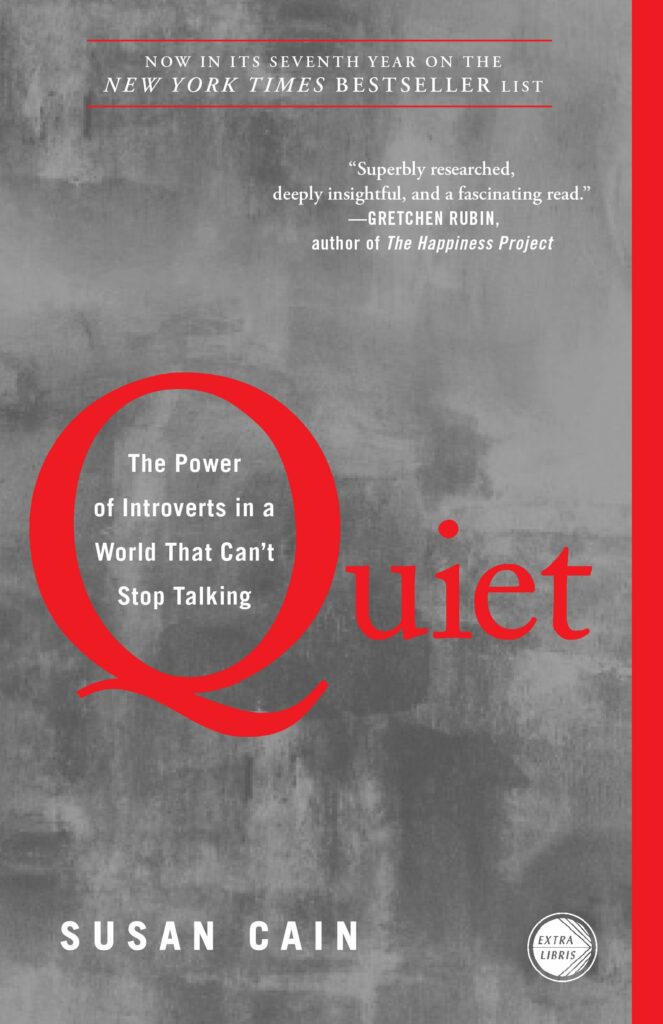by Susan Cain

What is an Introvert?
Many times introverts are just thought to be those who are shy. However those terms are mutually exclusive. You can have shy extroverts or bold introverts. Introversion and extroversion actually has to do with one’s brain chemistry. Introverts have a more active amygdala in their brain. This makes them more sensitive to incoming stimuli such as noise, color, touch, etc. Because of this introverts desire quiet, lower stimulating environments.
The Extrovert Ideal
The extrovert ideal is the idea that being an extrovert is seen by society as the better way to live life. This leads to extroverts being more prized by society than introverts. “You should get yourself out there more!”, “My child is so shy I don’t know how they are going to make it in life.”. These phrases and others are all to common in society today. This leads to many great ideas held by introverts to go unheard because they don’t seem confident.
Power of Introverts
Soft Power
Soft power is power that comes from quiet persistence in a cause. Gandhi is a good example of this. He was able to champion his cause without flashy rhetoric and salesmanship. Einstein is another example where he continued thinking about relativity for many years. Soft power is prized in more introverted areas such as Asia. “Silence is a source of great strength” – Lao Tzu.
Reward Sensitivity
Reward sensitivity is how much dopamine is dumped in the brain as a response to a reward such as sex, drinking, gambling, and other risky behaviors. This reward sensitivity is higher in extroverts. With lower reward sensitivity introverts are able to help avoid big losses through methodical thinking and putting checks in place to avoid the rush of dopamine that comes with risky bets.
Introverts think before they act, digest information thoroughly, stay on task longer, give up less easy, and work more accurately.
Susan Cain
My Thoughts
As a more extroverted person myself I still found this book extremely insightful. It helps me to understand why others don’t enjoy the same activities that I do and can help me to be more empathetic when it comes to planning things out. I can also understand how different people work in the workplace with higher or lower stimulation environments.